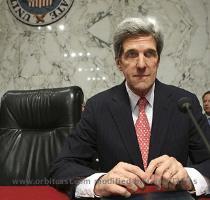Lawmakers want State Department to rethink Cuba aid program’s shift to private contractors
By By Laura Wides-munoz, APThursday, April 8, 2010
US funding of Cuba democracy work draws scrutiny
MIAMI — During the waning months of 2008, the Bush administration quietly pushed through two major contracts to international development companies in an effort to spend a record $45 million to support regime change in Cuba.
It was the first time Cuba funds went to private contractors, marking an effort to professionalize U.S. aid to the island’s independent media and people opposing the communist government.
Two years later, as the Obama administration is poised to reauthorize the Cuba democracy funding, it’s tough to see where that money has gone or whether contractors have fared any better than the foundations, universities and nonprofits that were once solely responsible for the aid.
Members of Congress are starting to demand more answers. In late March, Sen. John Kerry, D-Mass., and Rep. Howard Berman, D-Calif., chairman of the House Foreign Affairs Committee, temporarily held up funding.
“We are asking hard questions about fraud, waste and what actually works to benefit the Cuban people,” said Berman, who has also long been opposed to the U.S. embargo of Cuba.
Neither the State Department nor the U.S. Agency for International Development, which oversees most of the funds, responded to an Associated Press request for a copy of the original contracts or proposals. The State Department’s notification to Congress for renewing both contracts includes one paragraph for each proposal. The contractors have been equally tightlipped about how they are using U.S. tax dollars in Cuba.
“In the recent past, our committee’s oversight of these programs has uncovered outrageous abuses from personal shopping trips to hundreds of thousands of U.S. taxpayer dollars simply pocketed outright,” said Berman, referring to previous investigations into Cuba funding.
Unlike USAID programs in war-torn countries like Afghanistan or even in other communist countries like China, U.S. aid to Cuba is particularly tricky because it has often gone directly to those who oppose the Cuban government. Supporters of the aid say those who oppose U.S. policy scrutinize the aid program far more closely than they do U.S. initiatives in other countries.
As a result, the program has become “an odd hybrid of overt and covert activity,” said Philip Peters, a Cuba Expert at the Lexington Institute in Arlington, Va.
Washington-based Creative Associates International was awarded the largest contract of $6.5 million in 2008 and is now up for another $2.5 million. It has 13 field offices worldwide and experience in Afghanistan and Iraq. But it had none in Cuba when it won the first contract. And it still doesn’t list Cuba on its Web site.
It does have Caleb McCarry. Under the Bush administration, the State Department described his job as the “senior official responsible for U.S. government planning in support of a transition to democracy in Cuba.” McCarry went to Creative Associates in November of 2008, two months after the company won its first contract.
Creative Associates said McCarry recused himself from assignments related to the company beginning in March 2008. McCarry referred questions about his hiring to the State Department, which declined to comment on the details. USAID said McCarry had no involvement in selecting grantees or contractors.
Even so, McCarry’s move to Creative Associates raises questions, said Carlos Saladrigas of the Cuba Study Group, a nonprofit that supports U.S.-Cuba exchanges involving nongovernment groups, though he conceded he did not know the details of McCarry’s hiring.
Bethesda, Md.-based Development Associates International, which received a $4.5 million contract, didn’t mention its Cuba program publicly either — until one of its employees, Alan P. Gross was arrested by the Cuban government and accused of spying in December. The company has said Gross was handing out cell phones and laptops that allowed users to circumvent the island’s government controlled Internet.
Officials with Development Associates told the AP that Gross was providing the equipment to nonpolitical groups, but they declined to discuss their efforts on the island in greater detail. The group is now up for another $2.6 million.
The Obama administration has made it a priority to improve Cubans’ access to the Internet and other forms of outside communication, and there have been gains. More independent Cuban bloggers are posting their thoughts. When a political prisoner died on hunger strike last month, his mother’s outraged reaction hit the Internet almost immediately. And recent footage of harassment of the Ladies in White — many of them mothers and wives of imprisoned dissidents — prompted tens of thousands of Cuban-Americans and their supporters to march in solidarity in Miami and Los Angeles.
But it’s unclear how much of that the contractors are responsible for. Obama has loosened travel restrictions on Cuban-Americans, who can now take cell phones and other technology to relatives. And the Cuban government has eased restrictions on buying cell phones, though they are still prohibitively expensive for most Cubans.
Rep. Lincoln Diaz-Balart, a Miami Republican who is one of the most outspoken opponents of the Cuban government in Washington, said he hopes Obama will reconsider the Bush administration’s move toward contractors.
“(Nonprofits) have historically been the most experienced and effective in providing democracy assistance in Cuba,” he said.
For years, they were among the few doing the work. Compared to contractors, nonprofits generally have lower overhead and are often subcontracted by the for-profit companies.
In the case of Cuba, they built networks for delivering aid, often going through third countries to avoid U.S. travel restrictions and Cuban government surveillance and continue to send aid.
But several scathing congressional reports released in the last decade cited waste and questioned USAID grant-making practices to several of the nonprofits. Until at least 2004, many of the contracts were renewed without a competitive bidding process, and in 2008, a former employee at one Washington-based exile nonprofit was convicted of stealing $600,000 from the group.
USAID said the contracts give the agency greater input and oversight than doling out money through grants.
Many Cuban-Americans say government aid is necessary, especially to support those who don’t have relatives and friends abroad who can help them. They simply want more oversight to ensure the aid gets to the island.
The Lexington Institute’s Peters, who opposes the embargo, said allowing more academic and cultural exchanges between Americans and Cubans could help move Cuba toward democracy — at no cost to the American taxpayers.
“There’s nothing cloak-and-dagger about it, nothing secret about it,” he said, “but it could work.”
Tags: Caribbean, Cuba, Democracy, Florida, Government Regulations, Industry Regulation, John Kerry, Latin America And Caribbean, Miami, North America, Travel Laws And Regulations, United States

